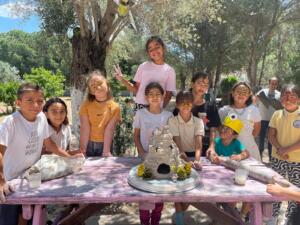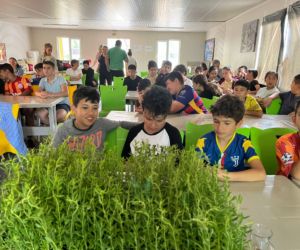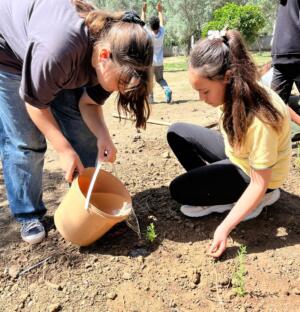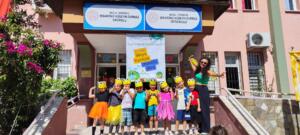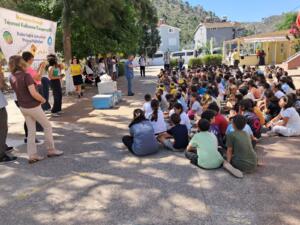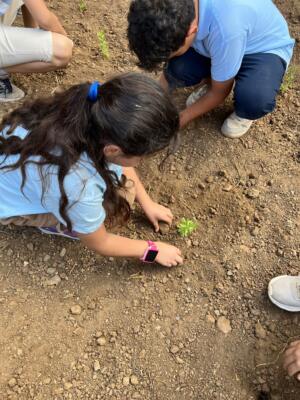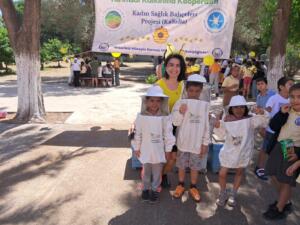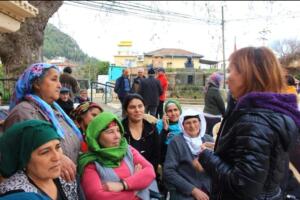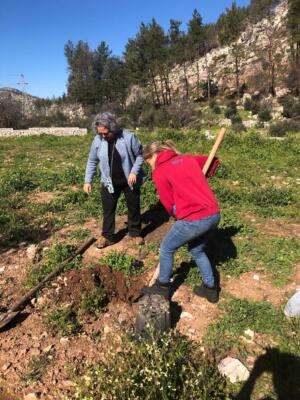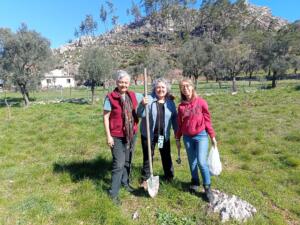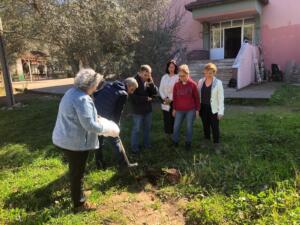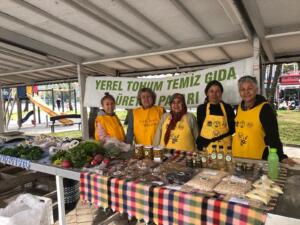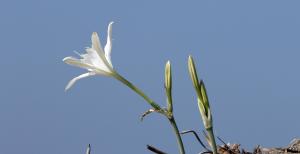
Grants
Protecting and promoting sustainable food systems
Community Gardens of Marmaris
215,000 TRY awarded
Status: Completed
Project Duration: September 2023 – November 2024
Challenge
Following last year’s mega fires in the Marmaris region, beekeeping activities and related agricultural development areas have been adversely affected. This project is a follow up proposal to demonstrate a sustainable production model as a solution to the restoration of natural habitat and local agricultural development with best practices.
Solution
The project aims to create an educational community and raise awareness about the medicinal properties of bee friendly plants and products. It will develop a course curriculum brochure to train plant collectors, primarily women, in selected regions, to help support beekeeper families. The project will also request the Ministry of National Education to offer a vocational course through Public Education Centers. Additionally, an inventory of honey and medicinal plants will be prepared to better understand the region’s biodiversity. Information will be gathered to support a return to traditional village economies based on traditional multiple agriculture using modern methods.
Project’s deliverables
- Establishing herbal gardens (medicinal aromatic plants grown with holistic methods) as bee pastures at four locations in Marmaris.
- Ensuring fair and sustainable herbal production through training and field meetings.
- Conducting training modules for primary school students in the sample garden at the school.
- Placing 10 hives in forest land and placing observation hives in schools to strengthen children’s connection with beekeeping and promote good ecological practices.
- Expanding the influence of the Marmaris Agricultural Ecological Development Cooperative at the Tuesday market, communication with cooperative customers.
Update May 2024: Our grantee recently engaged over 60 children in planting bee-friendly plants and educated them on the importance of bees. They also planted seedlings and provided training on medicinal and aromatic plants to enhance ecological farming and beekeeping in Marmaris. To learn more, read their mini-impact update here.
About the organisation: Marmaris Ecological Agricultural Development is a cooperative established mainly by women. It aims to support producers and engage in various activities. The cooperative focuses on supporting local producers in Marmaris and aims to ensure consumers’ access to clean and healthy food.

